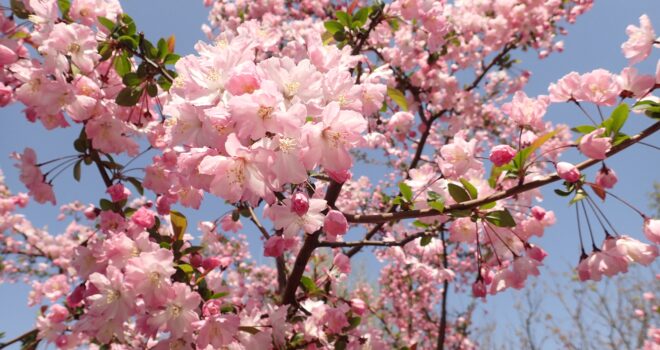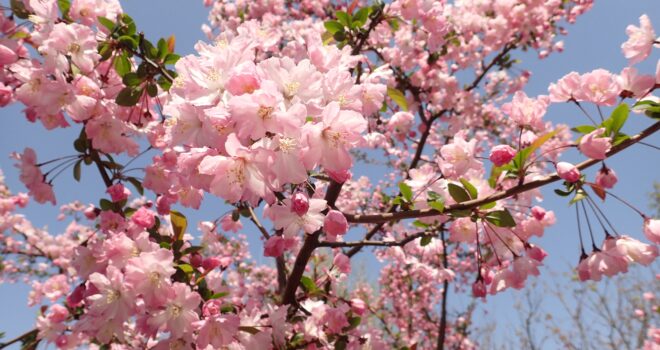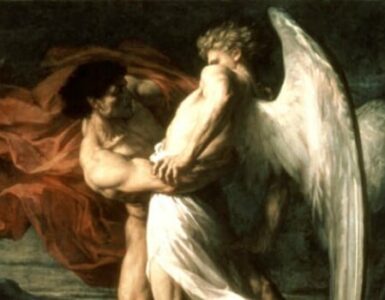Each of the four seasons vibrate with transcendent significance. I am particularly fond of a couplet from the poetry of John Donne: “No spring nor summer beauty hath such grace. As I have seen in one autumnal face.” Here Donne associates the fall season with maturity. Percy Shelley links the West Wind to “the breath of Autumn’s being” and concludes his ode by stating: “If Winter comes, can Spring be far behind.“
Now is the winter of our discontent made glorious summer,” writes Shakespeare (Richard III). John Steinbeck borrowed this line from the Bard and titled his Nobel Prize winning novel, The Winter of Our Discontent. The dreariness of winter can make us appreciate the arrival of summer all the more. This is a notion shared by another Nobel Laureate, Albert Camus: “In the midst of winter, I found there was, within me, an invincible summer. And that makes me happy.” The Catholic Pulitzer prize winning poet, Phyllis McGinley sees the Good Humor Man as a reminder of how we all long for an “imperishable summer.” “Summertime, in Gershwin”s Porgy and Bess, is when “the living is easy.”
In the Italian language, springtime is “Primavera,” a salad made of fresh greens, which also refers to the first truth (first love) and therefore to marriage. The springtime of a person’s life is regarded as his most creative. For college students, spring break, when they are infected with spring fever, is time to howl.
And then there is the startling line that introduces T.S. Eliot’s poem, The Waste Land: “April is the cruellest month”. It is indeed startling because we usually associate the arrival of Spring with life, abundance, vitality. “Winter kept us warm.” Eliot writes. And then things return to life with “spring rain”. April means the awakening of life, which is opposed to the preference for death that characterizes the citizens of the Waste Land. Although written in 1922, Eliot’s poem is remarkably predictive of the Culture of Death that haunts the modern world.
On a lighter note, Bill Veeck,a former owner of a Major League Baseball team, welcomed Spring in his own unique way. “The true harbinger of spring”,” he said, “is not crocuses or swallows returning to Capistrano, but the sound of the bat on the ball”. For baseball is a “Season,” the “Baseball Season,” and it arrives as springtime arrives in the heart of a young boy.
Pope John Paul II, in his Gospel of Life, contrasted the present Culture of Life with a Culture of Death. The legalization of abortion, together with accelerating rates of suicide, euthanasia, and self-destructive behavior, lend substance to the late pontiff’s claim that we are, indeed, living in a Culture of Death. But John Paul is a man of hope. In Tertio Millennio Adveniente, he speaks of what the third millennium means. He proclaims it as the Great Jubilee, a preparation for a “new springtime of Christian life,” a moment of evangelical possibilities in the wake of a century of winter.
The contrast evoked by two interpretations of Spring–Eliot’s gloom and John Paul’s hope—correspond with the notions of a Culture of Death as opposed to a Culture of Life. In one sense, it appears that the Culture of Death is winning and John Paul’s hope in a new springtime for the church appears to be a naive expression of optimism. Nonetheless, hope is a theological virtue and not merely an empirical assessment of the situation at the moment. We live by and are saved by hope. John Paul manifested his realism by acknowledging a Culture of Death. His hope mus be for something good, for we hope only for good things. The present situation, with its clerical abuses, divisions, defections, and poor leadership are indicators that a springtime has not yet arrived, and we are still suffering through an extended winter.
Was T. S. Eliot playing the role of prophet in The Waste Land? Or does the role of prophet belong to Saint Pope John Paul II? When Cardinal Wojtyla was elected to the papacy in 1978. he was 22 years away from the new millennium. Nonetheless, in his first encyclical, Redemptor hominis, he spoke of being entrusted by God with leading the Church into the new millennium. In purely human terms, it might seen unwarranted for him to make such a claim. Historically, it is most unusual for a pontificate to last longer than 20 years. Yet, his prophecy, if we may call it that, was more than vindicated.
If the new springtime has not yet arrived, perhaps it has been postponed until we more fully embrace and put into practice, the Word of God. We cannot abandon hope. Saint Pope John Paul’s words remain worthy of honoring. Nonetheless, we must survive the present winter through prayer and good works. Then, our new springtime will be made more “glorious.”















